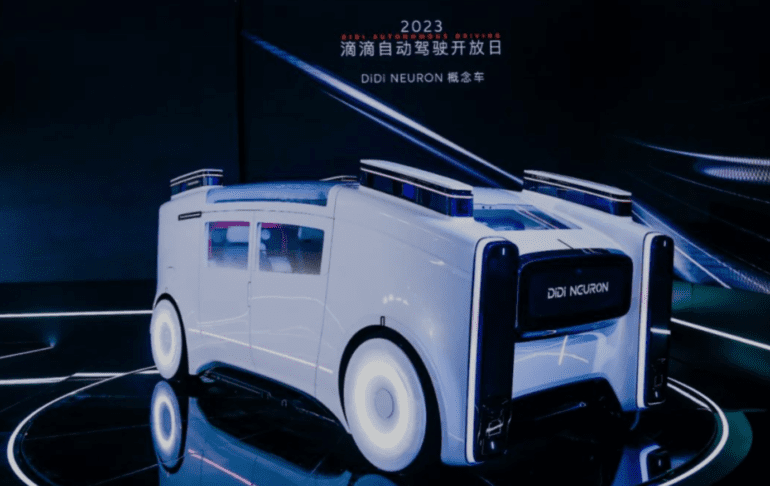TL;DR:
- Didi’s autonomous vehicle unit receives $149 million in funding from state investors.
- Investors are affiliated with Guangzhou’s municipal government, a strategic move for Didi.
- Strong local government relationships are crucial for launching robotaxi services in China.
- Didi plans to invest in R&D, accelerate product implementation, and collaborate across the industry.
- The ambitious goal is to introduce 24/7 self-developed robotaxis by 2025 with OEM partnerships.
Main AI News:
In 2020, Didi embarked on a journey to establish its autonomous vehicle subsidiary, a move that drew parallels to Uber’s autonomous vehicle division in the Chinese tech landscape. However, the winds of transformation soon swept across China’s technology sector, as regulatory scrutiny intensified and foreign investments dwindled in the face of escalating U.S.-China tensions. Throughout this tumultuous period, Didi’s autonomous vehicle unit remained in the shadows as its parent company faced a data security investigation. But today, it emerges from the storm stronger than ever, with a fresh infusion of capital.
Previously backed by SoftBank, Didi Autonomous Driving has just announced a significant funding boost of up to $149 million. This capital injection comes from two strategic investors with ties to the municipal government of Guangzhou, a thriving metropolis in southern China. The investors in question are none other than GAC Capital, a wholly-owned subsidiary of GAC Group, and Guangzhou Development District Investment Group.
In the context of China, building strong relationships with local authorities is pivotal to the successful deployment of a company’s robotaxi services. While not explicitly mentioned in the announcement, it wouldn’t be surprising to witness accelerated progress in Didi’s robotaxi rollout within this megacity, home to a staggering 18 million inhabitants. As early as March, Didi’s autonomous vehicles had already commenced commercial operations in the Huadu District of Guangzhou.
With this fresh injection of capital, Didi has outlined an ambitious plan. The company intends to make substantial investments in research and development, expedite the implementation of related products, foster open collaborations across the industry value chain, establish a sustainable and open industry ecosystem, and hasten the widespread adoption of autonomous driving technology.
Back in April, Didi unveiled its aspiration to introduce self-developed robotaxis to the public on a 24/7 basis by the year 2025. To achieve this, it has forged partnerships with several original equipment manufacturers (OEMs) for the development of the required hardware. Among these partners are renowned names such as Lincoln, BYD, Nissan, and Volvo. Notably, Didi’s ties with GAC have deepened, as it was revealed in May that the company had formed a joint venture with Aion, GAC’s electric vehicle subsidiary, aimed at mass-producing electric robotaxis with plug-in capabilities.
Conclusion:
Didi’s successful funding round and strategic partnerships signal a promising trajectory for the autonomous vehicle market in China. The company’s dedication to research and collaboration, combined with government support and a clear roadmap, positions Didi as a significant player in the evolving landscape of autonomous transportation.

